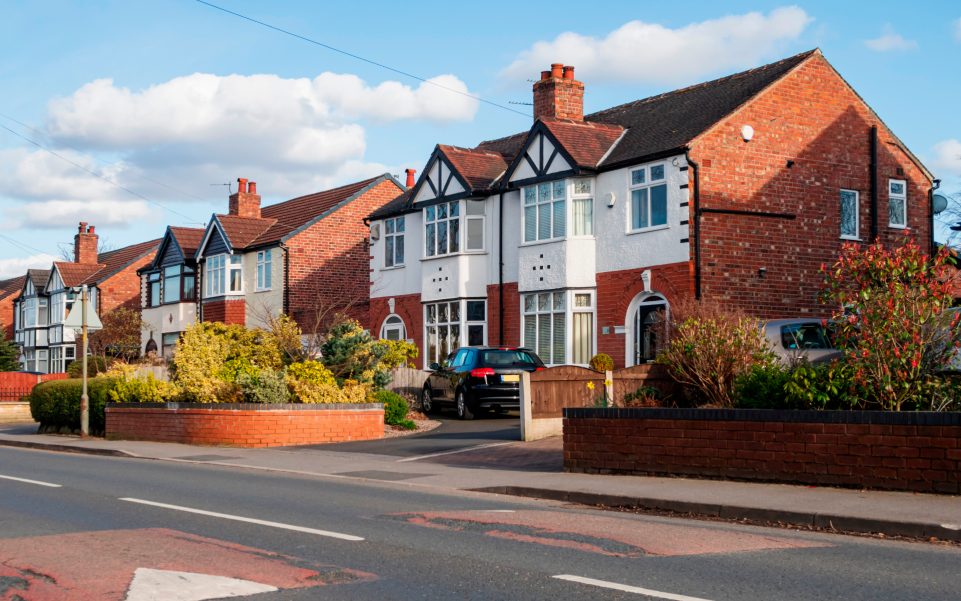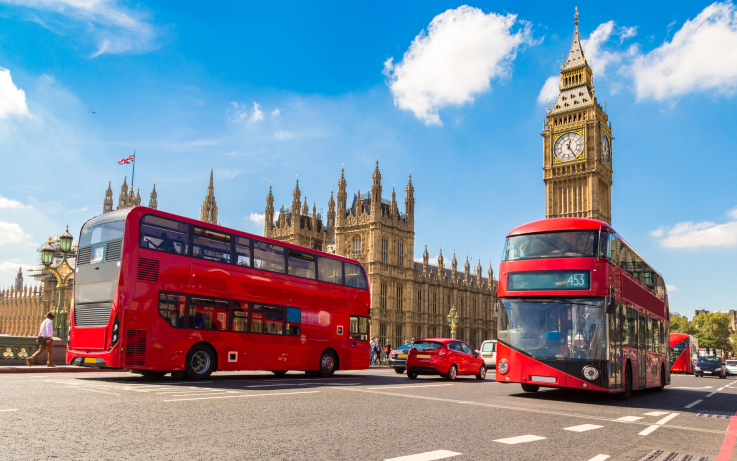Buying Real Estate in the UK

One of the best ways to invest money is to buy property in the UK. Real estate prices in London remain high amid world crises protecting the owners from worrying during market fluctuations.
If you want to stand on your own two feet, such an investment will give you exactly what you need: confidence in the future for you and your children.
Renting Out or Moving In?
People buy property for various reasons. It can be a regular and stable income from real estate in London while you live elsewhere. Such income will adjust with time and allow you to maintain the same lifestyle regardless of the circumstances.
However, there are lots of people who want to work in London and need a place to live. Before you start looking, research transport and social infrastructure in various areas, and think about what view from the window you want and who your neighbours will be. Do you care where they come from? Remember that there are good and troubled neighbourhoods. English is one of the more than 300 languages spoken in London daily.
Properties range from tiny studio flats to spacious family apartments, from “second-hand” properties to new builds. The latter tends to come as a white box with interior design left to your choice.
Rental Income: Location, Location, Location
How sought-after your property will be and how much you will get paid for it depends on its location. West London is known as a place where the well-to-do live. There are more cafes, bars, designer shops, and fantastic infrastructure, including schools, nurseries, clinics, and educational and entertainment hubs. The quality of life there is higher than in East London. It is a comfortable, safe, and convenient place to live, so a rental price of a residential or commercial property can be higher and continues to grow.
East London is highly multicultural with a predominantly foreign population coming from all over the world. There are, however, some deprived areas that you need to be aware of.
Another tip for you. When choosing where to buy in the UK, look for cultural and historic landmarks. Beautiful views and busy shopping streets will attract more tenants. If you buy a place in a central location, you can make about 10% profit on resale.
Belgravia, Chelsea, Kensington, and a few other areas are the most popular. A property there will cost you millions of pounds, but it will pay off quickly.
Average residential property values in inner London
| District | Studio flat (£) | 1 bedroom apartment (£) | 3 bedroom apartment or house (£) |
| Camden | 435 000 | 534 000 | 1 741 000 |
| City of London | 585 000 | 820 000 | 3 387 000 |
| Hackney | 421 000 | 434 000 | 882 500 |
| Hammersmith and Fulham | 324 000 | 537 000 | 1 452 000 |
| Haringey | 274 000 | 362 000 | 773 000 |
| Islington | 303 000 | 567 000 | 1 128 000 |
| Kensington and Chelsea | 417 000 | 790 000 | 2 518 000 |
| Lambeth | 389 000 | 397 000 | 826 000 |
| Lewesham | 255 000 | 320 000 | 632 000 |
| Newham | 348 000 | 293 000 | 543 000 |
| Southwark | 384 000 | 498 000 | 923 000 |
| Tower Hamlets | 387 000 | 594 000 | 1 023 000 |
| Wandsworth | 328 000 | 570 000 | 1 195 000 |
| Westminster | 387 000 | 632 000 | 2 220 000 |
Average residential property values in outer London
|
District |
Studio flat (£) | 1 bedroom apartment (£) |
3 bedroom apartment or house (£) |
|
Barking and Dagenham |
253 000 | 325 000 |
422 000 |
|
Barnet |
210 000 | 340 000 |
647 000 |
|
Bexley |
249 000 | 251 000 |
491 000 |
|
Brent |
307 500 | 334 000 |
718 000 |
|
Bromley |
188 000 | 247 500 |
589 000 |
|
Croydon |
191 000 | 307 000 |
571 000 |
|
Ealing |
344 000 | 410 000 |
698 000 |
|
Enfield |
192 000 | 263 000 |
562 500 |
|
Greenwich |
344 000 | 369 000 |
674 000 |
|
Harrow |
245 000 | 311 000 |
598 000 |
|
Havering |
208 000 | 229 000 |
442 000 |
|
Hillingdon |
209 000 | 266 000 |
560 000 |
|
Hounslow |
247 000 | 404 000 |
575 000 |
|
Kingston upon Thames |
268 000 | 321 000 |
677 000 |
|
Merton |
293 000 | 359 000 |
634 000 |
|
Redbridge |
234 000 | 273 000 |
554 000 |
|
Richmond upon Thames |
270 000 | 494 000 |
861 000 |
|
Sutton |
240 000 | 270 000 |
552 000 |
|
Waltham-Forest |
224 000 | 313 000 |
570 000 |
Average residential property values in inner London
|
District |
Studio flat (£) | 1 bedroom apartment (£) |
3 bedroom apartment or house (£) |
|
Camden |
265 000 – 800 000 | 270 000 – 875 000 |
600 000 – 4 250 000 |
|
City of London |
360 000 – 850 000 | 475 000 – 1 150 000 |
900 000 – 9 500 000 |
|
Hackney |
250 000 -698 000 | 285 000 – 750 000 |
600 000 – 1 850 000 |
|
Hammersmith and Fulham |
195 000 – 505 000 | 435 000 – 820 000 |
650 000 – 4 500 000 |
|
Haringey |
167 000 – 350 000 | 230 000 – 525 000 |
475 000 – 1 400 000 |
|
Islington |
190 000 – 450 000 | 300 000 – 883 000 |
650 000 – 2 000 000 |
|
Kensington and Chelsea |
275 000 – 575 000 | 425 000 – 1 325 000 |
1 100 000 – 4 950 000 |
|
Lambeth |
220 000 – 560 000 | 285 000 – 775 000 |
425 000 – 1 520 000 |
|
Lewesham |
180 000 – 350 000 | 210 000 – 450 000 |
440 000 – 835 000 |
|
Newham |
200 000 – 490 000 | 220 000 – 425 000 |
375 000 – 700 000 |
|
Southwark |
220 000 – 575 000 | 335 000 – 925 000 |
595 000 – 1 350 000 |
|
Tower Hamlets |
300 000 – 560 000 | 375 000 – 945 000 |
450 000 – 2 000 000 |
|
Wandsworth |
230 000 – 675 000 | 375 000 – 810 000 |
650 000 – 2 065 000 |
|
Westminster |
275 000 – 610 000 | 425 000 – 950 000 |
1 000 000 – 5 750 000 |
Average residential property values in outer London
|
District |
Studio flat (£) | 1 bedroom apartment (£) |
3 bedroom apartment or house (£) |
|
Barking and Dagenham |
165 000 – 375 000 | 175 000 – 280 000 |
265 000 – 600 000 |
|
Barnet |
150 000 – 290 000 | 200 000 – 529 000 |
375 000 – 965 000 |
|
Bexley |
100 000 – 400 000 | 160 000 – 425 000 |
340 000 – 590 000 |
|
Brent |
215 000 – 480 000 | 265 000 – 529 000 |
375 000 – 1 300 000 |
|
Bromley |
160 000 – 250 000 | 180 000 – 385 000 |
325 000 – 995 000 |
|
Croydon |
160 000 – 250 000 | 230 000 – 415 000 |
465 000 – 750 000 |
|
Ealing |
195 000 – 525 000 | 210 000 – 538 000 |
490 000 – 1 350 000 |
|
Enfield |
150 000 – 225 000 | 165 000 – 485 000 |
400 000 – 760 000 |
|
Greenwich |
230 000 – 429 000 | 190 000 – 550 000 |
450 000 – 1 350 000 |
|
Harrow |
200 000 – 300 000 | 190 000 – 375 000 |
375 000 – 850 000 |
|
Havering |
160 000 – 325 000 | 140 000 – 300 000 |
325 000 – 550 000 |
|
Hillingdon |
160 000 – 260 000 | 195 000 – 325 000 |
400 000 – 700 000 |
|
Hounslow |
175 000 – 420 000 | 225 000 – 635 000 |
400 000 – 795 000 |
|
Kingston upon Thames |
230 000 – 325 000 | 270 000 – 430 000 |
450 000 – 900 000 |
|
Merton |
200 000 – 425 000 | 230 000 – 650 000 |
430 000 – 1 150 000 |
|
Redbridge |
165 000 – 397 000 | 210 000 – 400 000 |
350 000 – 750 000 |
|
Richmond upon Thames |
160 000 – 440 000 | 340 000 – 795 000 |
500 000 – 1 350 000 |
|
Sutton |
185 000 – 375 000 | 210 000 – 315 000 |
350 000 – 700 000 |
|
Waltham-Forest |
150 000 – 325 000 | 182 000 – 600 000 |
413 000 – 875 000 |
Leasehold vs Freehold
There are two types of property ownership in London. Freehold is when you buy a dwelling and the land it rests on. Leasehold is when you get a long-term lease on a dwelling only, for up to 99 years; the land belongs to someone else. It is possible to switch between them. Before making a choice, discuss it thoroughly with your advisor; they will find you the best property deal in the UK based on your specific circumstances and goals.
New Build and Off-Plan
Like in many other countries, the UK legislation allows developers to sell real estate off plan, i.e. when it is still under construction. Such property is not only great because it’s built to modern standards but also because you can benefit from price increases. Before it’s even completed, it can be going up in price by 10% per year. A bonus is a ten-year insurance cover offered by the National House Building Council.
To strike a deal, you must pay in advance 10-30% of the current price of the property. The remaining amount as well as taxes are paid when you get the keys.
The UK offers great mortgages with up to 70% of the purchase price available to borrow and a relatively low annual interest rate.
Before a deal can be signed due diligence checks and checks of the source of funds must be carried out to ensure that the money you use to buy a property is from legitimate sources. Besides, British financial institutions are prepared to give foreigners only buy-to-let mortgages. They guarantee a regular stable income, which would ensure interest rates and charges are paid to the financial institutions.
Investment Value in Numbers
London sticks to the moderate policy, making the UK economy less affected by world crises than its European neighbours. Land for construction is strictly regulated; this contributes to the market deficit and makes real estate investment even more attractive.
The Nationwide has run research over a ten-year period (ended in 2019). The research papers present the statistics showing an inflation of 60% in real estate prices. This figure is expected to be 11.5% up within the next five years – when it comes to selling property. If we are talking about renting it out, the profit will amount to 7% per year on average.
Property Acquisition Procedure
Anyone looking to gain from selling their London property might find themselves a real estate agent. They would, for a fee, use all their resources and connections to find a buyer and prepare the necessary paperwork. Once all the details are discussed and included in a contract, the parties sign it, pay taxes, and the title passes to the buyer. Remember that it is not always necessary to pay the entire price straight away. As a rule, you will put a deposit down when the contract is signed, and the rest is paid when all the paperwork is complete.
Legal representatives of both parties provide legal support for the real estate deal: check all the paperwork for the title transfer and background information including all kinds of reports from public authorities, for example, regarding electricity supply. They will also be responsible for the money transfer. The buyer transfers the necessary amount to acquire the property and pay all the taxes and fees to their legal representative. When the deal is signed, the latter transfers the sale amount to the seller’s rep and pays all relevant fees and taxes.
Taxes
Three taxes must be paid when selling or buying a property in the UK:
- Stamp Duty Land Tax (SDLT)
- Value Added Tax (VAT)
- Income Tax (paid by the seller).
Your legal representatives will make sure these taxes are paid on time. When is the deadline? Thirty days after the contract is signed. The payable fee depends on the type of property and the legal status of the buyer (an individual or a legal entity). The Stamp Duty Land Tax is fixed; you can ask your legal advisor about it.
If you sell real estate, you must also pay income tax regardless of your tax residency. If, in addition, you let a property out, your rental income will be taxed as well.
Legal entities buying real estate must pay corporation tax. We recommend consulting your advisors about the tax rate beforehand.
Another UK property-related tax is the inheritance tax. It is mandatory, so make sure you take it into account.
Professional assistance
If you don’t have relevant knowledge and experience in buying property in the UK, you might come across a few problems and even lose money.
Experienced real estate agents with an in-depth understanding of London boroughs and real estate lawyers with the knowledge of relevant laws and regulations will save you time and stress.
FAQ about buying property in the UK
What taxes do I need to pay when buying a property in the UK?
When buying a property in the United Kingdom, you must pay a Stamp Duty Land Tax. How much you’ll pay will depend on various factors. For example, if this is not your only property, you will pay more.
A buyer also pays VAT.
A seller will have to pay income tax on the sale value of the real estate.
Inheriting real estate
The UK Inheritance Tax rate is high at 40%. You might have to get a loan or sell part of your property to pay it.
Only a spouse of a deceased person is exempt from this tax.
To insure or not to insure real estate?
If you take out a mortgage, insurance is a must. Otherwise, it is up to the owner to insure their property or not. To insure a building or a house, and sometimes its contents and outdoor items, is a common solution to avoid problems in the future.
A standard insurance agreement in the UK is valid for one year. Do not make the mistake of relying on an automatic renewal clause. Contact your insurance agent to secure the best terms and conditions.







